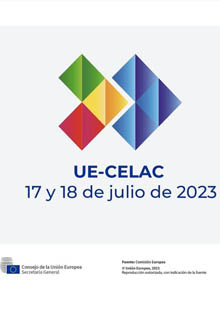Alberto Barciela
Journalist and vice-president of EditoRed
Tourism is the evidence that the human being searches, risks, knows, shares, acquires, studies, takes and brings, it is a civilizing mark, the capacity to understand different cultures, the exchange based on respect, on the assumption of the other and of the others, the only intentional invasion of peace, and undoubtedly supposes an approach to the culture at the same time that presupposes moments of happiness.
Life itself is a journey, towards oneself, towards others, it is the creation and evolution of all cultures, the enjoyment of all conquests, an approach to all histories, it is time without time, the wandering of days and experiences, it is curiosity and discovery.
Since prehistoric times, as nomads we move in search of the setting sun, we sail the seas with commercial or conquest eagerness, we seek the hope of religion and the miracle or the route of the economy, wherever they are, we translate our words into other languages. In a word, we evolved.
Thus, the barbarians -etymological stutterers- knew us. Thus, we traded, we browsed, we emigrated and received forced immigrants, we drew maps and looked for specific names in millions of toponyms, we named rivers, we named mountains; we developed transportation: canoes, ocean liners, sailboats or gondolas, carriages, trains, electric vehicles; we evolved infrastructures: roads, promenades, roads and highways, stations, ports, airports; we devised crops and recipes; we invented technologies: compasses, cameras; we engineered hot and cold beds, spa establishments, hostels, grand hotels; we perfected architectures, museums, libraries, monuments; we exchanged knowledge, art, crafts, professions; we developed shows and even wrote books and articles.
With travel, we develop memories that fit neither in a cardboard suitcase nor in a world trunk. The world wraps itself in stable and changing geographies, it is the same and different, here, there, there. Travels become words and industry, but above all they generate emotions and memories, they allow us to celebrate events and let our imagination fly to places of dreams: Kyoto, Pernambuco, Timbuktu, Bombay, Finisterre… Cities and places that illuminate our screens with images and lift us beyond the Himalayas to allow us to gravitate in space, celebrate a congress, pray in a temple, wander through squares or simply dance on a terrace over a lake. And that is why we toast with fine wines or excellent cavas or champagnes, sitting at the tables of a starry restaurant or tasting a tapa in a simple tavern.
A trip is above all the proposal of an experience, it is associated with leisure, enjoyment, relaxation, escape from routine, it brings us closer to the distant or invites us to a simple stroll through the neighborhood, the nearby forest or garden, the zoo, the city or the village. It can include a meeting on a terrace, a chat in a café with the scent of the Orient or a family visit to an interesting exhibition.
It is possible to live anchored to a single place, like Veermer to Delft, Hopper to New York, Pessoa to Lisbon, but it is more gratifying to propose to travel around the world in eighty ideas -today time and transportation have altered Jules Verne’s most audacious literary plans-, to dream of traveling to Mars or to plan a honeymoon in the pyramids, in the Ganjes, the Lí River in Guilin, China or in Los Roques, Venezuela, after visiting Angel Falls.
Tourism is the first industry of countries like Spain, Mexico or Portugal, and can be the salvation of the economy of many others, especially in Latin America. It positively affects almost all economic sectors and generates wealth and employment, it can be the engine of modernization sponsored by digitalization and, without a doubt, if well regulated, it aims to be the first sector in defense of the natural environment. Tourism, with its taxes, pays for a large part of education and health, pensions and general welfare, develops agribusiness, urban planning, architecture, hygiene, and is very sensitive to climate change and catastrophes, which is why it helps to anticipate them. It also promotes literature, art or crafts and defends idiosyncrasies, especially those related to local customs and languages, because the genuine attracts.
A journey begins with a step, dare to take it.
Good International Tourism Day. Peace and good. Good journey.
© Originally published in AquíEuropa / All rights reserved





